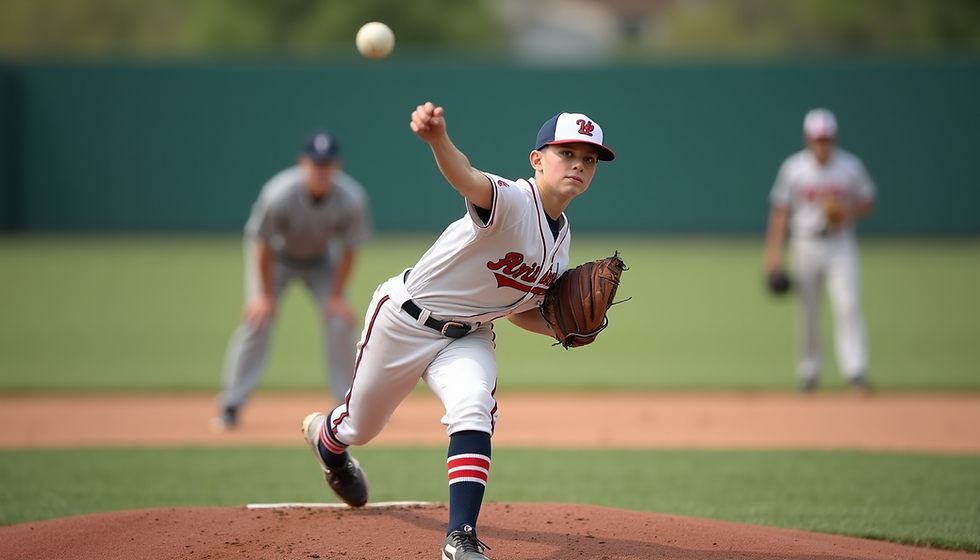How Mental Toughness Shapes the Next Generation of Baseball Players
- Apr 22, 2025
- 2 min read
Inspired by “Mental Toughness: Baseball’s Winning Edge”
When we think about developing great baseball players, we often focus on mechanics: how to swing, how to pitch, how to throw. But if there’s one lesson that Mental Toughness: Baseball’s Winning Edge teaches us, it’s that skill alone isn’t enough. What separates good players from great ones isn’t always talent, it’s mindset.
At the youth level, this concept couldn’t be more important.
What Mental Toughness Really Means for Young Athletes
Mental toughness isn’t about pretending to be fearless or never feeling nervous. It’s about learning how to respond to adversity: striking out with the bases loaded, missing a ground ball, or losing a tough game. The book highlights how professionals train their minds to bounce back, refocus, and stay confident, even when everything feels like it's falling apart.
Youth players face these same challenges every day. While they may not be playing in front of thousands of fans, they’re learning how to handle pressure, disappointment, and the drive to improve, skills that extend far beyond the field.
Why It Matters at the Youth Level
Youth baseball is where habits form. A player who learns how to mentally recover from a bad inning at age 10 is better equipped to handle tryouts at 14, playoffs at 16, and life’s curveballs at any age. Mental toughness teaches players:
How to stay focused when they’re tired or distracted
How to turn failure into fuel
How to quiet the noise of self-doubt and negative thoughts
How to support teammates and stay positive, even on bad days
Coaching for Grit, Not Just Greatness
As coaches and parents, it’s easy to focus on performance: Did he get a hit? Did she strike out the side? But Mental Toughness reminds us to pay attention to the process, not just the outcome. Did they bounce back after striking out? Did they take feedback and adjust? Did they bring energy when the team was down?
Encouraging resilience over perfection helps build players who don’t fear failure; they learn from it. And that’s the type of athlete who thrives not only in baseball but in school, friendships, and future careers.
Helping Players Build a Mental Routine
One of the most useful takeaways from the book is the power of routines. At the pro level, players rely on consistent mental habits to stay grounded. For youth players, this might mean:
Taking a deep breath before each pitch
Visualizing success before stepping into the box
Using a positive phrase or “reset word” after a mistake
Journaling after games to reflect and reset
These are small habits but they add up to big confidence over time.
At the youth level, developing toughness is just as important as developing skills. Because the kids who learn to compete with poise, respond with resilience, and lead with confidence? They're the ones who grow into strong teammates, driven students, and well-rounded adults on and off the field.




